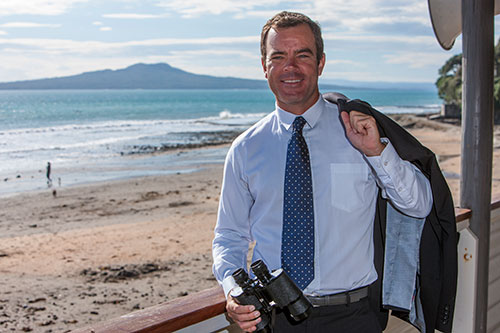3 questions you need to ask before selecting your financial adviser
Ten years ago when I was working in corporate insurance, there were people in the insurance advisory space that operated in their own best interests, rather than those of their clients. That meant instead of finding the best cover for a particular client based on their needs, they could have been driven by the incentives offered by insurance companies.
Seeing this firsthand was the catalyst that led me to start my own business providing financial advice that was truly unbiased and specific to my clients needs.
Law changes you need to be aware of this year
Now thankfully, a lot has changed. New legislation came into force this year that means anyone who gives regulated financial advice must, hold, or operate under, a Financial Advice Provider (FAP) licence.
It takes time and effort to gain this licence (I achieved the qualification after four years of part time study).
As well as being qualified, all providers of financial advice must now follow a Code of Conduct that includes a proviso placing the interests of their clients first. This common sense legislative change means people can have much more confidence when they go to advisers to discuss things like insurance, mortgages and investments.
As a Financial Adviser that specialises in insurance, its great to see this change in law and the up-skilling and increased professionalism in our industry that has accompanied it.
Despite better consumer protections in law, its still important to think carefully about the people you choose to get advice from, especially when it comes to vital financial issues. So, when youre considering an adviser, I recommend asking these three questions:
How long have they been around? The new financial advice regime that came into force on Monday 15 March 2021 was designed to bring more transparency to our industry. That meant along with being registered on the Financial Service Providers Register (FSPR), advisers must now disclose important information to clients to ensure they can make informed decisions. Included in this is disclosing any conflicts of interest, commissions advisers are paid, and limits on the companies or products they advise on. For example, Im able to give advice on insurance, but not mortgages or investments. Do some research on your adviser before you consider using them. Find out what their expertise is and exactly what financial information they can provide to you.
What is their reputation like in the industry? Background, experience and reputation are vital areas to investigate when you are considering engaging an adviser. Do an internet search on them, looking at things like LinkedIn to see if their public profile matches what they say about themselves on their website. Spend some time researching whether they have a positive reputation and can give you advice on a range of financial entities that they have preexisting relationships with.
What is your rapport with them? It sounds obvious right? But personal rapport is a key part of developing a strong relationship with an adviser. If a person is going to be your trusted adviser, you need to think about whether you are comfortable discussing personal matters with them. If you feel like they dont have your best interests at heart, or arent available in the way you would like, its best to move on.
The changes we have seen to the financial service providers industry this year are, in my view, long overdue. They will help ensure the public can receive good financial advice, and the bad behaviour we saw in the old days is significantly reduced. If you want to talk about any of the issues raised in this article, just connect with me on 021 650 082. Corey Rix Financial Adviser aka Lifestyle Protector



